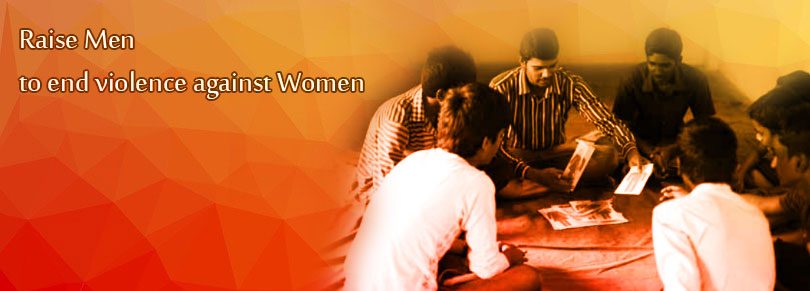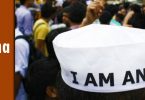Recent headlines, detailing gang rapes and other atrocities against women in India, have drawn the world’s attention to an unpalatable fact. More than 100 million women continue to face violence and discrimination at the hands of men. Founded in 2009, the non-profit-making Equal Community Foundation (ECF) set out to change things with the belief that in order to achieve gender equality; they need to engage men as a part of the solution.
Will Muir and Rujuta Teredesai co-founders of Equal Community Foundation were struck by the prevalence of gender based violence that results in women’s inequitable access to basic human and civil rights such as education, sanitation and health care. Will says, “The traditional approach of women’s empowerment is alone not delivering the required results as it excludes men, whose attitudes and behaviour sit at the root of the problem from the solution.”
Violence against women is not just a women’s issue. It is men’s issue. It is everyone’s issue. Pointing fingers at men or accusing them is not going to resolve the problem.
The mission of ECF is to ensure that every man in India has the opportunity to study and practise gender equitable behaviour to end violence and discrimination against women. Their theory of change is that if men study and debate the value of women with others that they trust, and if they are supported with tools to manage their behaviour by role models that they respect, then they will:
- Reduce their own violent and discriminating behaviour;
- Advocate an end to end violence and discrimination by their peers and others; and
- Take personal and collective action to empower women in their lives and communities
- Thereby accelerating progress towards equality by reducing the amount of violence and discrimination women face, and increasing the resources within a community that are dedicated to empowering women.
Today ECF, with a team of 20 people who design and implement innovative behaviour change programmes for men, conduct research and develop popular support for this approach. ECF’s work is based on the belief that “although all men are not a part of the problem, all men need to be a part of the solution. Thousands have taken part in ECF’s founding programme, Action for Equality, which engages and mobilises men in the age group of 14-17 across 20 low-income communities in Pune. 61% of women living with graduates of the programme have reported a reduction in violence or discrimination. The programme aims to create male leaders who will grow and sustain this movement.
“…He has become more sensitive. He makes an effort to advocate this change to others.”
Shreyas is 14 and lives in a community called Gulistan Nagar with 5 other family members. Shreyas was part of the fourth cycle of AfE – Graduate Programme. Shreyas’ mother, Sanjeevani is a strong supporter of the programme. She says, “Shreyas contributes towards the household chores. Even earlier, he did. But since he joined AfE, he has become more sensitive and aware about issues regarding women.
He doesn’t like it when violence against women takes place in society and he is vocal about it. He now makes an effort to pass this information on and advocate the change to the other boys in our community. That is something I’m very proud of. I have watched a couple of action events, where the topics of dowry and street sexual harassment were addressed. I found them very informative. There is a real need to talk to men and women in the community about these issues.
“… he has become more responsible and mature now.”
Mehboob, 14, lives in Vikasnagar with his family and is the youngest amongst his siblings. He is studying in Std.9 and has completed the 4th cycle of the AfE programme. His father, Shahbuddin, is a local truck driver. His mother, Mumtaz, is part of a women’s group called Umang. “I want to continue with ECF. I like to perform in the Action Events. I am much more confident than earlier. I like to organise the event as well as perform. According to me, a man and woman should both work equally, inside the house as well as outside. Even today, there are many girls who don’t get a chance to get educated. This should not happen. Also, women should not tolerate violence and abuse. The way of bringing up women must change. Men should stop such violent behaviour against women.”
Mehboob’s mother adds, “Mehboob and the other boys share a rapport with their mentor and I am very glad that they learn about important issues and how to behave right. Mehboob is very helpful in the house. It is very important for a girl to become independent. Just because men sometimes tend to behave violently, why should a woman sit behind closed doors? The mentality of men should change. A girl should be firm on her decision and go ahead with what she wants to do.”
Through fieldwork and research ECF aims to highlight priority strategies for achieving scale for this approach. Whereas the foundation’s Man Up India campaign, launched in March, emphasises on the fact that every individual has a role to play in raising men to end violence and discrimination against women; parents, teachers and media professionals being the key actors.
Do you think violence against women is a serious issue that affects all of us? Do you believe in the approach of raising men to end violence and discrimination against women? Show your support and join the journey of change. Each one of us has a role to play in raising men to end violence and discrimination against women.
For more details visit ecf.org.in






Leave a Comment